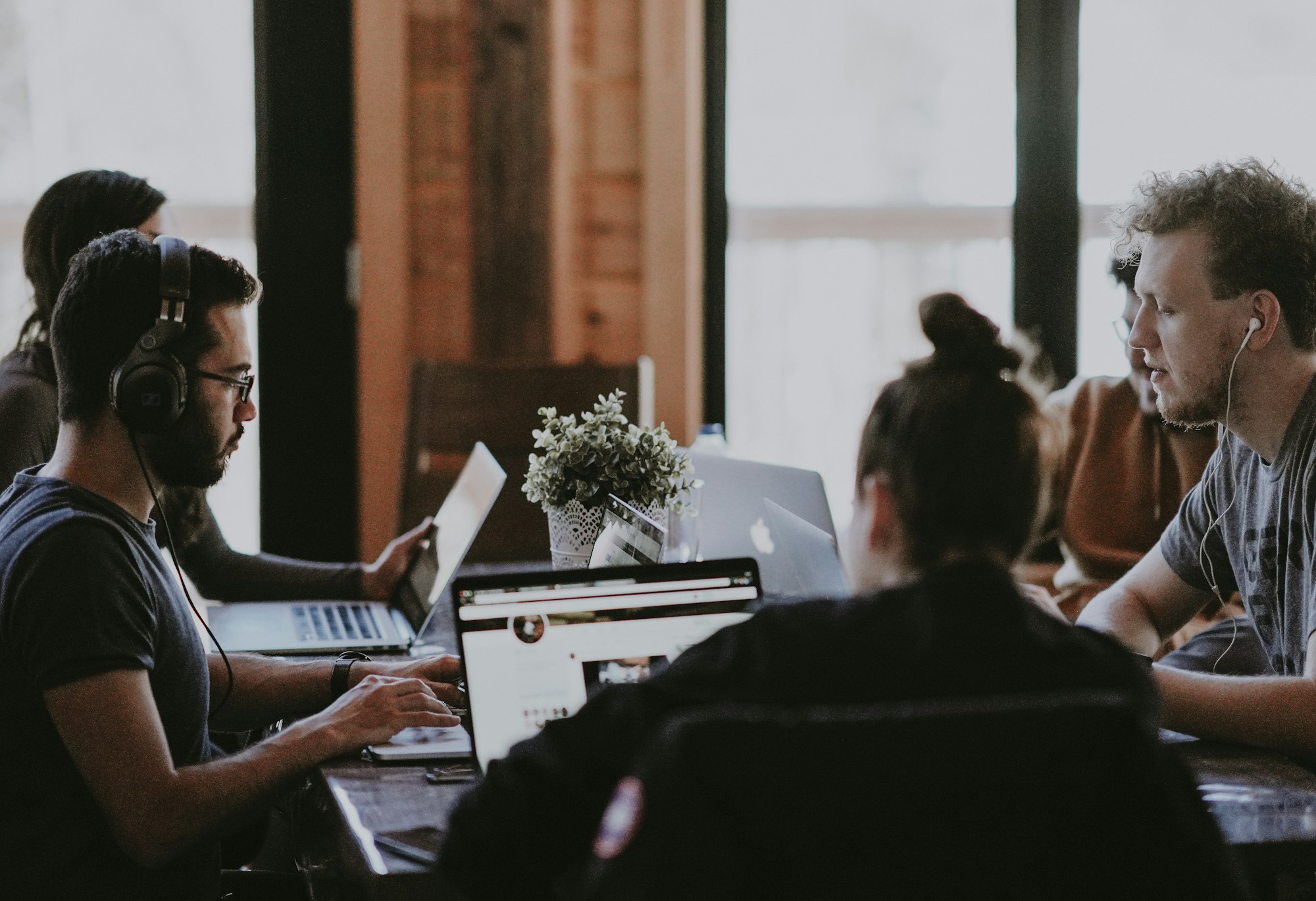Researching apart, together: the power of working in tandem
I want to explain why I think this form of social co-working can be so helpful for work and research.

Every week on Sunday evening, a bot writes the same message in our group chat:
Well done on making it to the end of the week! How did this week go? Do you want to set some goals for next week?
Spurred on by ideas floating around social media, my friends and I started a productivity group chat. It's not our only group chat, of course, but it's a space to talk about our work, ambitions, and improving our lives. The kinds of things that do well to have healthy boundaries around them (like a separate space to talk about them) because they're easy to overdo! Professionally, we’re all in different fields: secondary teaching, psychology, technology, the arts, law. But, when time allows, we jump into the chat to list some goals (personal, professional or otherwise!) for the week. The key is just to share them publicly, to help them feel more like a public commitment. We schedule group calls when our busy schedules allow for it, to work towards our goals together, often just working in silence with some optional lo-fi beats or café noise playing, and taking breaks together to catch up and chat.
It’s surprisingly effective, and in this blog post I want to explain why I think this form of social co-working can be so helpful for work and research.
While they existed before, in 2020 I definitely saw an increase in these kinds of social co-working spaces. They don't necessarily have to be online, though many of them are – such as Focusmate, a service which offers scheduled time to go on a video call with a stranger so you can focus on your tasks together.
The important factors don’t change. You get at least two people together who have different specific goals, but a common desire to get things done. You promote an informal and friendly environment, even if there is a degree of ‘formality’ in how focus is maintained (for example, we may collectively decide we want to work silently for 25 minutes, then take a break, effectively running a shared Pomodoro timer). Everyone cheers each other on and supports each other through difficult tasks and processes.
I feel strongly that qualitative research (and academia generally!) could benefit from more spaces like this. It’s not just for productivity — these kinds of co-working spaces offer the chance to take care of your wellbeing as well, booking out time to work more sustainably. Many of the goals of academic research can feel looming and insurmountable when it feels like you're facing them alone. The huge word count of a PhD thesis or monograph, creeping deadlines for publications or assignments, and juggling teaching with producing research outputs – all these can become quickly overwhelming. If you have a social space dedicated to focusing on just one task (one word, one paragraph, one paper) at a time, you can step away from the looming consequences of not finishing, and instead just concentrate on finishing. Time is brought back to the incremental and present.
When it’s time to finish your qualitative analysis and write up your paper, researching can be an isolated practice, especially if you’re the lone scholar working on your project, and even more so if your research is based on texts that had already been written or recorded. Co-working across disciplines and departments is a chance to reduce that isolation to talk about your research, get inspired by the work of other people, and remember why you're doing what you're doing.
Co-working online is a relatively recent phenomenon, so while I have lots of anecdotal evidence to say it's helped me and many of my peers, there isn’t a massive amount of literature to back up the effectiveness of the practice. I suspect that the amount of spaces that exist, and their different social norms and practices, will make a thorough evaluation difficult. Falk and Ichino (2006) found that working alongside someone else in person led to higher productivity. However, this study had the primary scope of increasing productivity, with more of a focus on surveillance and accountability. By contrast, here we’re looking at a voluntary and collective co-working practice, with only a gentle amount of social pressure (e.g. setting some time aside in your calendar to work alongside a friend, but not unhealthily comparing your productivity to theirs!). I'd like to reframe productivity as the byproduct of a supportive, social working space, rather than the inherent goal!
Co-working and productivity spaces are, to me, a positive environment, but they shouldn’t be places that require sugarcoating or enforced positivity. In my friends' group chat, we feel comfortable being honest if things didn’t go to plan or we didn't manage to get anything done. As a consequence, I’ve found my attitude towards productivity lightening, approaching things from a more holistic, less ‘nose to the grindstone’ way. It feels less guilt-inducing to be easy on myself when we’re mutually reminding each other to rest in hard weeks – and in some weeks, my list of goals will include consciously taking time to rest!
At Quirkos, we understand the crucial importance of collaboration and mutual support in qualitative research. Our top priority is building simple, accessible software that allows qualitative researchers to collaborate quickly and easily with one another, and ensure reflexivity and conversation can be a part of their research methodology.
In line with our goals, we also want to facilitate spaces to help the qualitative community to come together, collaborate and support one another. So, we’ve got some projects coming up to help us to build a qualitative space together!
We are running two virtual Qualitative Café sessions in early February, where you can work on your qualitative research in a supportive environment.
Bring anything you're working on and we'll provide a relaxed and gently moderated space where you can focus on your goals. The text chat will be open if you'd like to set an intention for the session or ask questions, and we'll also keep a break room open if you want to chat over voice. There will be optional 'focus music' selections as well as (also optional) scheduled breaks and check-ins to see how everyone is getting on. We hope to see you there!
You can book tickets via Eventbrite below:
6th February, 2pm GMT/9am EST/6am PST
7th February, 6pm GMT/1pm EST/10am PST
Sources
Falk, Armin, and Andrea Ichino. “Clean Evidence on Peer Effects.” Journal of Labor Economics, vol. 24, no. 1, 2006, pp. 39–57. JSTOR, https://doi.org/10.1086/497818.
